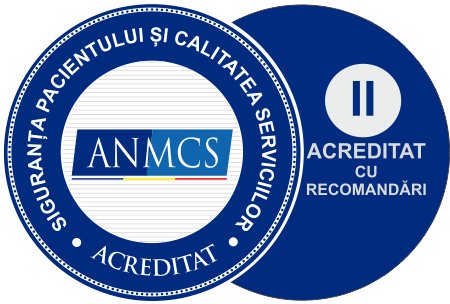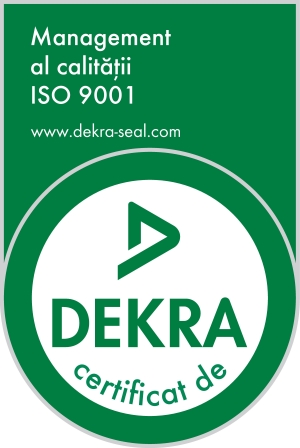Cookie Policy
Site-ul www.laurusmedical.ro uses own or third-party cookies to provide visitors with a better navigation experience and services adapted to the individual needs and interest. These cookies can come from the following third parties: Google Analytics, Google Adwords, Facebook, Google+, Twitter, Linkedin, Pinterest, JivoChat, etc. The website includes links to third party websites; once these links are accessed, users must abide by the policy of the respective website.
In what is referred to as “web 2.0”, “cookies” play an important role in facilitating and delivering the multiple services the user enjoys on the Internet, such as:
- The customization of settings such as: the website viewing language, the currency in which certain prices or rates are denominated, the saving of options for various goods (measures, further details, etc.).
- Cookies provide website holders with a valuable feedback on the use of their website by visitors, allowing them to boost efficiency and user-friendliness.
- They allow multimedia or other types of apps on other website to be included on a certain website to create a more meaningful, useful and pleasant navigation experience.
- They improve online advertising efficiency.
- What is a “cookie” file?
- Session cookies – they are temporarily stored in the web browser cookie folder and stored until the respective user leaves the site or closes the browser window (e.g.: when the user logs on/off a webmail account or the social networks).
- Persistent cookies – They are stored on a computer or equipment hard drive (and, in general, the storage period depends upon the preset cookie lifespan). Persistent cookies also include the ones located on a different website than the one the user is visiting – known as ‘third party cookies’ (cookies placed by third parties) – that can be anonymously used to store a user’s interests, so that the advertising delivered is as relevant as possible for the users.
- What are the advantages of the cookies?
- What is the lifespan of a cookie?
- What are third party cookies?
- How are cookies used by this website?
- Website performance cookies
- Visitor analysis cookies
- Recording cookies
- Advertising cookies
- video player volume settings
- the video streaming speed the browser supports
- What kind of information is stored and processed using cookies?
- 7. Why are cookies important online?
- Content and services adapted to the user’s preferences – news, weather, sports, maps, advertising and governmental services, entertainment web services and travel services.
- Offers adapted to the users’ interest – password storage, language preferences (E.g.: displaying search results in Romanian).
- Storage of parental control filters regarding the internet content (family mode options, safe search features).
- Limiting the advertising display frequency – limiting the number of times an ad is displayed to a certain user on a website.
- Display of relevant advertising for a user.
- Measuring, optimization and analytics features – such as the confirmation of a certain type of traffic on a website, the type of content viewed and the manner in which a user reaches a website (e.g.: through search engines, directly, from other websites, etc.) Websites perform these use analysis to improve the websites to the users’ benefit.
- Security and Confidentiality
A “Cookie Internet” (also known as “cookie browser” or “cookie HTTP” or simply “cookie”) is a small file, made up of digits and letters, which is stored on the computer, mobile terminal or other equipment from which the user access the Internet. Cookies are installed pursuant to a request sent by a web server to a browser (e.g.: Internet Explorer, Chrome, Mozilla Firefox) and it is entirely “passive” (it does not contain software, viruses or spyware and cannot access the information on the user’s hard drive). A cookie has 2 parts: the name and the content or the cookie value. Moreover, the lifespan of a cookie is predetermined; technically, only the web server sending the cookie is able to newly access it when a user returns to the website associated to the respective web server. Cookies as such do not require personal data to be user and, in most cases, they do not personally identify internet users. There are 2 large categories of cookies:
A cookie contains information that connects a web browser (the user) to a certain web server (the website). If a browser accesses that web server again, it is able to read the already stored information and react in consequence. Cookies are meant to foster a pleasant navigation experience for the users and they support many websites’ efforts to provide comfortable services to the users: e.g. – online confidentiality preferences, website language options, shopping carts or relevant advertising.
Cookies are managed by web servers. The lifespan of a cookie may significantly vary, depending on the purpose for which they are placed. Some cookies are only used for single sessions (session cookies) and they are no longer stored after the user leaves the website, whereas some cookie are kept and reused each time the user returns to that website (‘permanent cookies’). However, a user can delete cookies at all times, through the browser settings.
Certain content sections on some websites can be made available through third parties/suppliers (e.g.: news box, a video or an ad). These third parties can also place cookies through the website. These cookies are called “third party cookies” because they are placed by the owner of the respective website. Third party suppliers must also abide by the laws in force and by the website holder’s confidentiality policies.
A visit on this site may place the following types of cookies:
Performance cookies
This type of cookies retains the user’s preferences on the website, so that there’s no need to reconfigure them upon each new site visit. Examples:
Visitor analysis cookies
Each time a user accesses this website, the third party analytics software generates a user analysis cookie. This cookie tells us whether you’ve visited the website before. The browser will tell us if this cookie is already installed on your equipment; if not, we will generate one. This helps us monitor individual users accessing our website and the frequency with which they visit our site. As long as you are not registered on this site, this cookie cannot be used to identify natural persons, it is only used for statistical purposes. If you are registered, we might also have the details you have entered, such as your e-mail and username – which are kept confidential and subjected to the provisions in the Terms and Conditions, the Confidentiality Policy, as well as the provisions under the data protection laws in force.
Geotargetting cookies
These cookies are used by a software that identifies the user’s country. It is fully anonymous and it is only used in order to customize the content of our website.
Registration cookies
When you register on this website, we generate a cookie that informs us if you are already registered or not. Our servers use these cookies to inform us on your registration account and as to whether you hold the permission for a certain service or not. Moreover, it allows us to associate all comments you post on our website to your username. If you haven’t selected the “Keep me logged in” feature, this cookie is automatically deleted when you shut down the browser or computer.
Advertising cookies
automatically deleted when you shut down the browser or computer. Advertising cookies These cookies help us find out whether you have viewed an online advertisement or not, what type of advertisement you viewed and how long it has been since you saw the advertising message. We also use these cookies to target online advertising. We can also use cookies belonging to a third party, in order to better target our advertising efforts, to display, for instance, advertising on holidays, if the user has recently visited a website article on this topic. These cookies are anonymous, they store information on the content viewed, not on the users. We also set anonymous cookies through other websites on which we advertise. By receiving them, we can use them to recognize you as visitor of the specific website if you subsequently access our website, we will be able to deliver advertising based on this information.
Advertising provider cookies
Most of the advertising you will find on this website belongs to third parties. Some of these parties use their own anonymous cookies to analyze the number of people exposed to an advertising message or to see how many people were repeatedly exposed to the same ad. Companies generating these cookies have their own confidentiality policies, and this website cannot read or edit these cookies. Third party cookies can be used to display targeted advertising on other websites as well, relying on your navigation on this website.
Other third party cookies
On some pages, third parties may select anonymous cookies, in order to monitor the success of an application or customize it. Due to the manner of use, this website cannot access these cookies, just as third parties cannot access the cookies held by this website. For instance, when you share an article using the social network button on this website, the respective social network will register your activity.
[cookies]
Cookies store the information in small text file, which allows a website to recognize a browser. The webserver will recognize the browser until the cookie expires or is deleted. The cookies store important information that improves the online navigation experience (e.g.: the website language settings; keeping a user logged into his/her webmail account; online banking security; keeping the products in the shopping cart).
Cookies are the core element for the efficient operation of the internet, as they help generate a user-friendly experience, adapted to each user’s preferences and interests. The refusal or deactivation of cookies can render certain websites impossible to use. The refusal or deactivation of cookies does not mean that you will no longer receive online publicity – it simply means that this advertising will no longer consider your preferences and interests, as highlighted through your navigation behaviour. Examples of important cookie uses (that do not require the user to authenticate into an account):
Cookies are NOT viruses! They use plain text formats. They are not made up of code pieces, so they cannot be executed or self-run. Hence, they cannot duplicate or replicate on other networks to be re-run or replicated. Because they cannot perform these functions, they cannot be regarded as viruses. Cookies can, however, be used for negative purposes. Because they store information on the users’ preferences and navigation history, both on individual and on several websites, cookies can be used as a form of Spyware. Several anti-spyware products are aware of that and they constantly mark cookies to be deleted as part of the antivirus/anti-spyware erasure/scanning processes.



